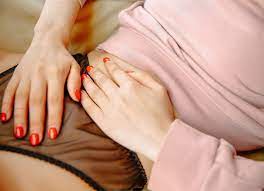In the journey of womanhood, one significant aspect that accompanies the female experience is menstruation. This natural process has been an integral part of human existence since the beginning of time. However, despite its universal presence, menstruation has often been shrouded in silence, taboos, and misinformation. In this article, we delve into the world of menstruation, exploring its significance, historical perspectives, challenges, and the growing movement of embracing periods.
Understanding Menstruation
What is menstruation?
Menstruation refers to the monthly shedding of the uterine lining through the vagina. It is a normal physiological process unique to individuals assigned female at birth. Typically, it begins during puberty and continues until menopause, unless interrupted by pregnancy or certain medical conditions.
The menstrual cycle
The menstrual cycle encompasses the hormonal and physiological changes that occur in a woman's body each month. It usually lasts around 28 days, although it can vary for different individuals. The cycle involves the release of an egg from the ovaries (ovulation) and the preparation of the uterus for potential pregnancy. If fertilization doesn't occur, the uterine lining is shed, resulting in menstruation.
Historical Perspectives on Menstruation
Cultural beliefs and taboos
Throughout history, menstruation has been associated with various cultural beliefs and taboos. In many societies, it has been viewed as impure or a curse, leading to exclusion, isolation, and stigmatization of menstruating individuals. Such attitudes have perpetuated myths and misconceptions, contributing to the secrecy surrounding periods.
Menstruation in ancient civilizations
Interestingly, ancient civilizations held diverse views on menstruation. Some cultures celebrated it as a symbol of fertility and womanhood, while others considered it a time of spiritual significance. For example, ancient Egyptians worshipped a goddess named Isis, who was associated with menstruation and motherhood.
Menstrual Hygiene Management
Importance of menstrual hygiene
Maintaining proper menstrual hygiene is crucial for the well-being and health of individuals. Using clean menstrual products, such as embrace womanhood pads or tampons, and changing them regularly helps prevent infections and discomfort. Access to clean water and sanitation facilities is also vital for effective menstrual hygiene management.
Access to menstrual products
Unfortunately, many women and girls worldwide face challenges in accessing affordable and hygienic menstrual products. The lack of availability, affordability, and social norms surrounding menstruation often restrict their choices and affect their overall well-being. Efforts are being made to improve access to menstrual products and promote menstrual equity.
Embracing Periods
Breaking the stigma
Breaking the stigma associated with menstruation is essential for creating a more inclusive and understanding society. Conversations around periods need to be normalized, empowering individuals to openly discuss their experiences, challenges, and needs. Education and awareness play a crucial role in dismantling the taboos surrounding menstruation.
Period positivity movements
In recent years, several period positivity movements have emerged worldwide, aiming to celebrate and embrace periods. These movements encourage individuals to view menstruation as a natural and empowering process. They promote open dialogue, provide support networks, and advocate for policies that prioritize menstrual health and dignity.
Challenges and Empowerment
Menstruation and education
In many parts of the world, menstruation affects girls' education. Lack of access to menstrual products, inadequate sanitation facilities, and the stigma associated with periods often lead to absenteeism and dropouts. Empowering girls through menstrual education, providing menstrual products in schools, and creating a supportive environment are crucial steps toward addressing this issue.
Workplace challenges and initiatives
Menstruation can also pose challenges in the workplace, including pain, discomfort, and reduced productivity. Companies are recognizing the importance of menstrual well-being and implementing supportive policies. Menstrual leave, flexible working arrangements, and providing access to menstrual products are some initiatives that promote inclusivity and support employees.
Sustainable Menstruation
Environment-friendly options
Considering the environmental impact of disposable menstrual products, sustainable alternatives are gaining popularity. Menstrual cups, made of medical-grade silicone or latex, are reusable and eco-friendly. They provide a cost-effective and sustainable solution, reducing waste and carbon footprint.
Menstrual cups and reusable pads
Menstrual cups, along with reusable cloth pads, offer individuals an alternative to traditional disposable products. These options not only contribute to environmental sustainability but also empower individuals to take control of their menstrual health. With proper care and maintenance, these reusable options can last for several years.
Menstrual Health and Well-being
Common menstrual disorders
While menstruation is a normal process, some individuals may experience menstrual disorders that cause discomfort or affect their overall well-being. Conditions such as dysmenorrhea (painful periods), irregular periods, or heavy bleeding can impact daily life. Seeking medical advice and adopting self-care practices can help manage these conditions effectively.
Self-care during periods
Engaging in self-care practices during periods is crucial for physical and emotional well-being. This includes maintaining good hygiene, staying hydrated, eating nutritious foods, and managing pain or discomfort. Rest, relaxation, and practicing self-compassion are also essential for a positive menstrual experience.
Conclusion
Embracing womanhood includes embracing the journey of periods. By breaking the stigma, promoting education, and providing access to menstrual products, we can create a more inclusive and supportive environment for all individuals. Periods should be celebrated as a natural and empowering part of life, fostering understanding, and enabling everyone to thrive.
FAQs
1. Are periods a sign of a health problem?
No, periods are a normal physiological process. However, if you experience severe pain, excessive bleeding, or other concerning symptoms, it is advisable to consult a healthcare professional.
2. Can swimming during periods cause health issues?
No, swimming during periods does not pose any health risks. Using menstrual products like tampons or menstrual cups can allow individuals to engage in water activities comfortably.
3. Can exercise alleviate menstrual cramps?
Engaging in regular exercise, such as light aerobic activities or yoga, can help alleviate menstrual cramps. It promotes blood circulation and releases endorphins, which may reduce pain and discomfort.
4. What are some eco-friendly period products?
Eco-friendly period products include menstrual cups, reusable cloth pads, and organic cottonpads. These options are reusable, reducing waste and environmental impact.
5. How can I support girls and women with limited access to menstrual products?
You can support girls and women with limited access to menstrual products by donating to organizations that provide menstrual supplies, advocating for policies that ensure menstrual equity, and raising awareness about the importance of menstrual hygiene.


No comments yet